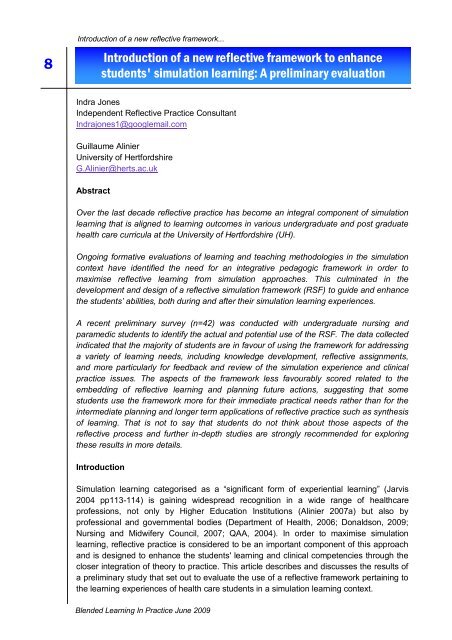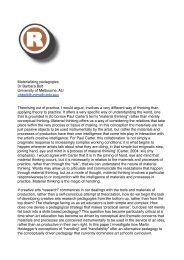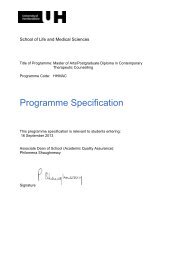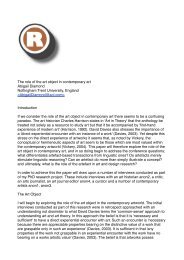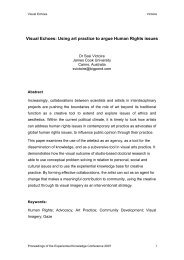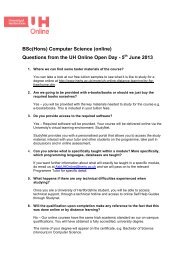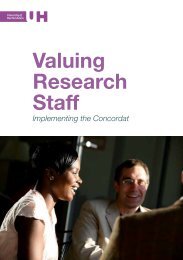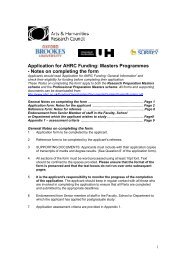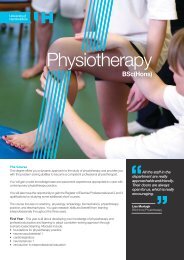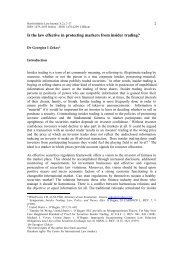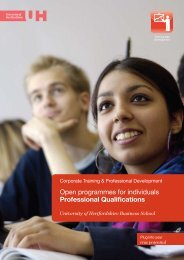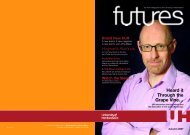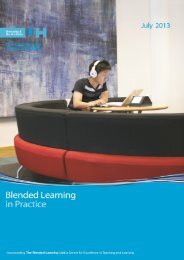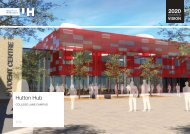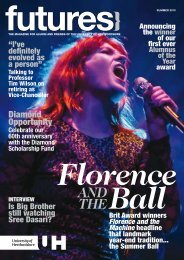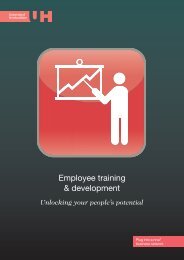June 2009 - University of Hertfordshire
June 2009 - University of Hertfordshire
June 2009 - University of Hertfordshire
You also want an ePaper? Increase the reach of your titles
YUMPU automatically turns print PDFs into web optimized ePapers that Google loves.
8<br />
Introduction <strong>of</strong> a new reflective framework...<br />
Introduction <strong>of</strong> a new reflective framework to enhance<br />
students' simulation learning: A preliminary evaluation<br />
Indra Jones<br />
Independent Reflective Practice Consultant<br />
Indrajones1@googlemail.com<br />
Guillaume Alinier<br />
<strong>University</strong> <strong>of</strong> <strong>Hertfordshire</strong><br />
G.Alinier@herts.ac.uk<br />
Abstract<br />
Over the last decade reflective practice has become an integral component <strong>of</strong> simulation<br />
learning that is aligned to learning outcomes in various undergraduate and post graduate<br />
health care curricula at the <strong>University</strong> <strong>of</strong> <strong>Hertfordshire</strong> (UH).<br />
Ongoing formative evaluations <strong>of</strong> learning and teaching methodologies in the simulation<br />
context have identified the need for an integrative pedagogic framework in order to<br />
maximise reflective learning from simulation approaches. This culminated in the<br />
development and design <strong>of</strong> a reflective simulation framework (RSF) to guide and enhance<br />
the students’ abilities, both during and after their simulation learning experiences.<br />
A recent preliminary survey (n=42) was conducted with undergraduate nursing and<br />
paramedic students to identify the actual and potential use <strong>of</strong> the RSF. The data collected<br />
indicated that the majority <strong>of</strong> students are in favour <strong>of</strong> using the framework for addressing<br />
a variety <strong>of</strong> learning needs, including knowledge development, reflective assignments,<br />
and more particularly for feedback and review <strong>of</strong> the simulation experience and clinical<br />
practice issues. The aspects <strong>of</strong> the framework less favourably scored related to the<br />
embedding <strong>of</strong> reflective learning and planning future actions, suggesting that some<br />
students use the framework more for their immediate practical needs rather than for the<br />
intermediate planning and longer term applications <strong>of</strong> reflective practice such as synthesis<br />
<strong>of</strong> learning. That is not to say that students do not think about those aspects <strong>of</strong> the<br />
reflective process and further in-depth studies are strongly recommended for exploring<br />
these results in more details.<br />
Introduction<br />
Simulation learning categorised as a “significant form <strong>of</strong> experiential learning” (Jarvis<br />
2004 pp113-114) is gaining widespread recognition in a wide range <strong>of</strong> healthcare<br />
pr<strong>of</strong>essions, not only by Higher Education Institutions (Alinier 2007a) but also by<br />
pr<strong>of</strong>essional and governmental bodies (Department <strong>of</strong> Health, 2006; Donaldson, <strong>2009</strong>;<br />
Nursing and Midwifery Council, 2007; QAA, 2004). In order to maximise simulation<br />
learning, reflective practice is considered to be an important component <strong>of</strong> this approach<br />
and is designed to enhance the students' learning and clinical competencies through the<br />
closer integration <strong>of</strong> theory to practice. This article describes and discusses the results <strong>of</strong><br />
a preliminary study that set out to evaluate the use <strong>of</strong> a reflective framework pertaining to<br />
the learning experiences <strong>of</strong> health care students in a simulation learning context.<br />
Blended Learning In Practice <strong>June</strong> <strong>2009</strong>


